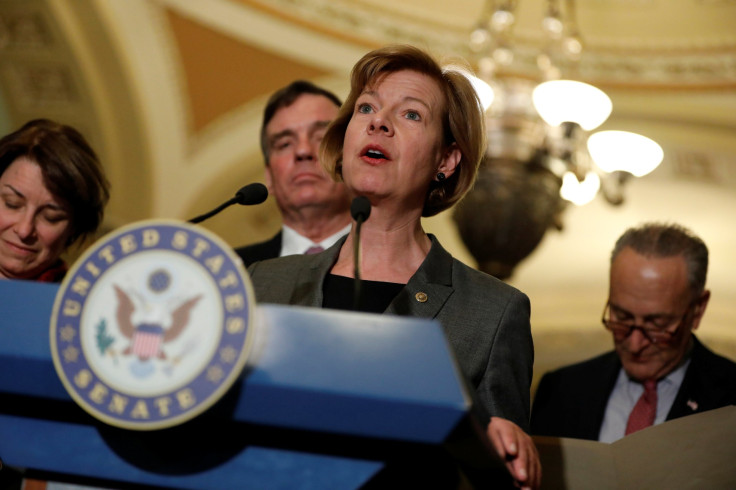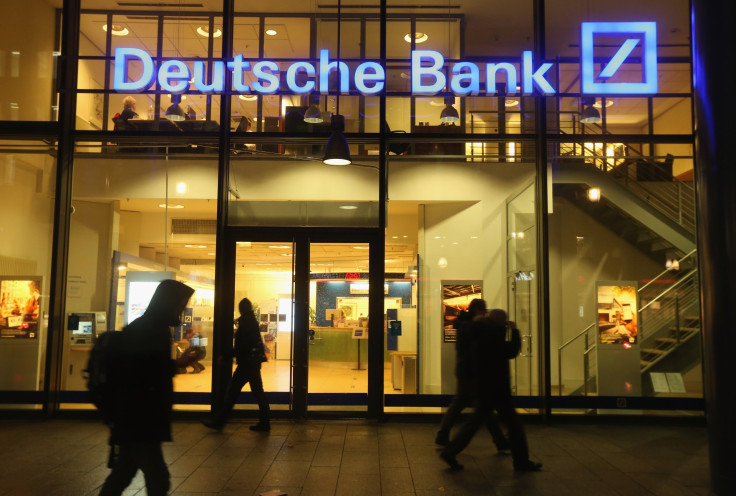Democratic Senators Want To Force Convicted Banks To Help Insure Pensions

Weeks after President Donald Trump’s administration waived a punishment for a group of convicted banks, including one that owns millions of dollars of Trump debt, Democrats introduced legislation that would force financial giants seeking those waivers to help shore up the agency that guarantees workers’ retirement benefits.
Under federal law, banks whose affiliates have been convicted of violating securities laws are barred from managing funds in federally regulated retirement systems. International Business Times last week reported that the Department of Labor, as it did under President Barack Obama, gave five banks special exemptions from that punishment, known as Qualified Professional Asset Manager (QPAM) waivers, despite pleading guilty in a global interest-rate rigging scandal. One of the banks that received an exemption was Deutsche Bank, to which Trump and his business empire owes at least $130 million, according to the president’s public financial disclosures.
Following the waivers, Democratic Sens. Tammy Baldwin (WI) and Sherrod Brown (OH) this week introduced the Pension Stability Act, which would require banks applying for QPAM waivers to pay a $1 million dollar “user fee” with their applications. (The fee would increase an unspecified amount for repeat applicants.) Those fees go to the Pension Benefit Guaranty Corporation (PBGC), a government agency that insures the private retirement plans of 40 million U.S. workers.

Created by Congress in 1974, the PBGC essentially picks up the tab for pensioners if their insured private pension plans fail: the agency currently delivers benefits to 900,000 workers enrolled in nearly 5,000 failed pension plans, according to the PBCG’s 2017 annual report.
In a statement, Baldwin said the user fees from the QPAM waivers could help shore up the PBGC’s finances, although any funding from the user fees would most likely be a drop in the bucket: the PBGC is currently running a $76 billion deficit.
“I am introducing this reform to address the financial challenges of the pension insurance program and to generate new revenue to fund worker pensions,” Baldwin said in a statement. “Financial institutions convicted of a crime should have to pay a penalty that will provide funding to support workers and retirees who saw massive cuts to their pensions through no fault of their own.”
The Labor Department has issued a total of 38 QPAM waivers since 1997. In December 2016, the Obama administration issued one-year QPAM waivers to Deutsche Bank, Citigroup, JPMorgan, Barclays and UBS. A year later, the Trump administration issued longer waivers to those same banks: UBS and Deutsche Bank were granted three-year waivers, while the other three banks received five-year exemptions
© Copyright IBTimes 2024. All rights reserved.




















